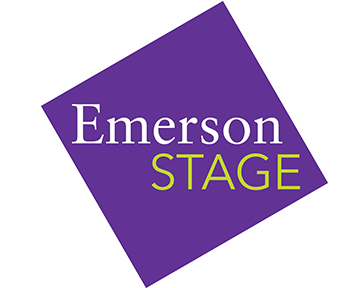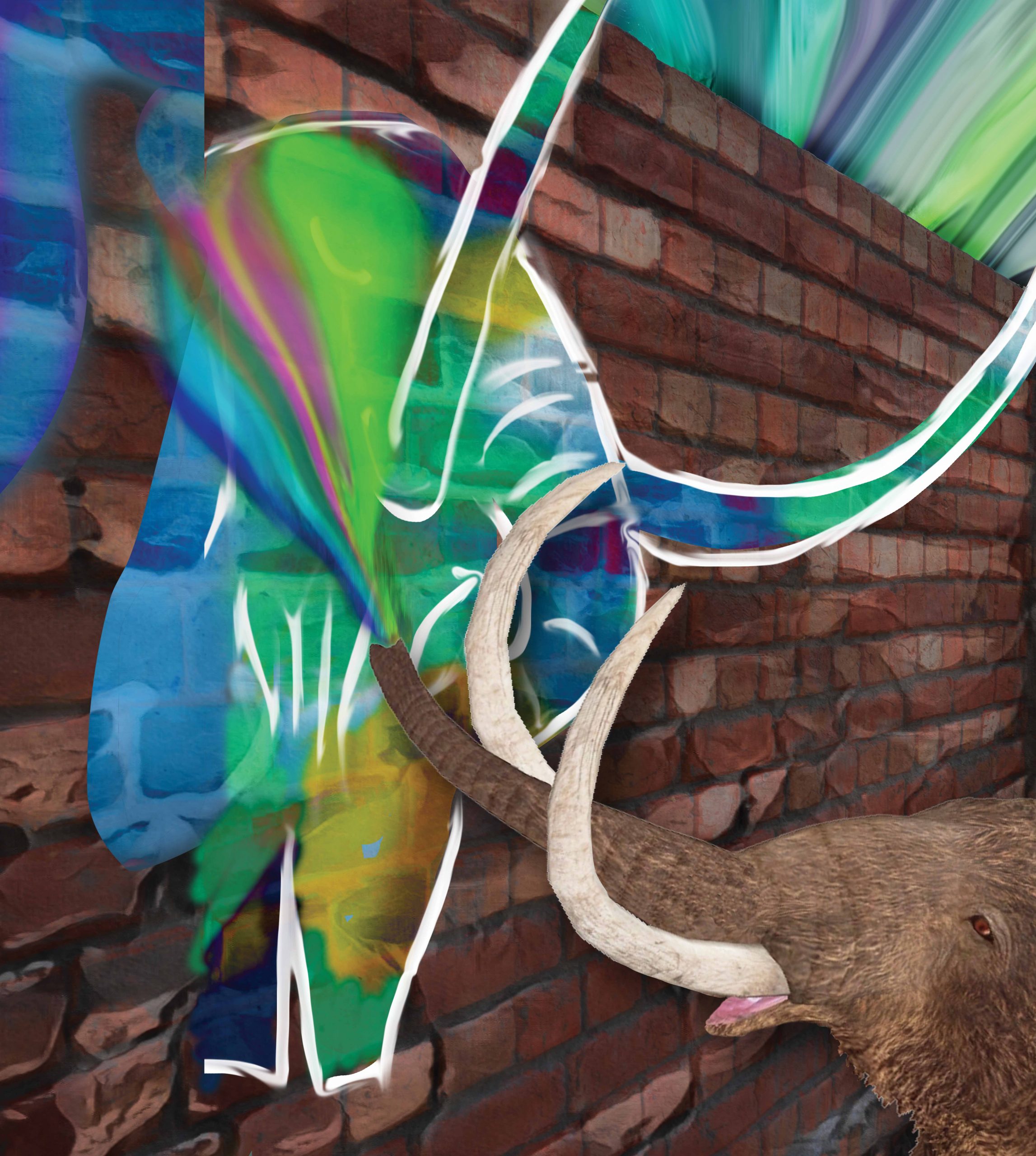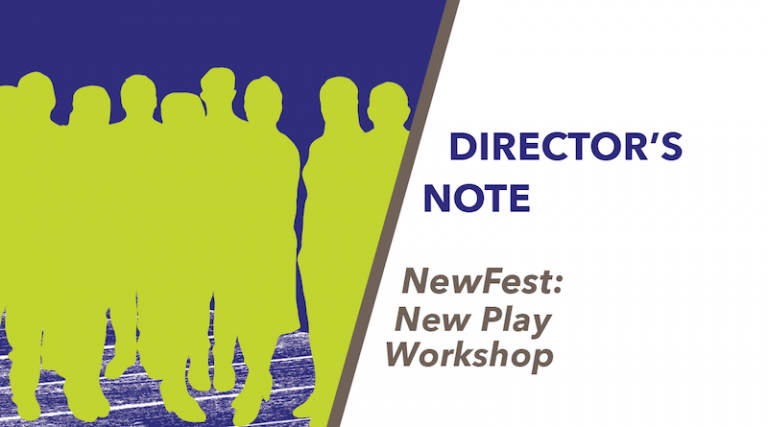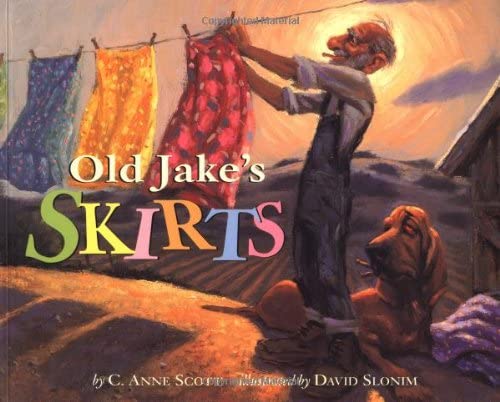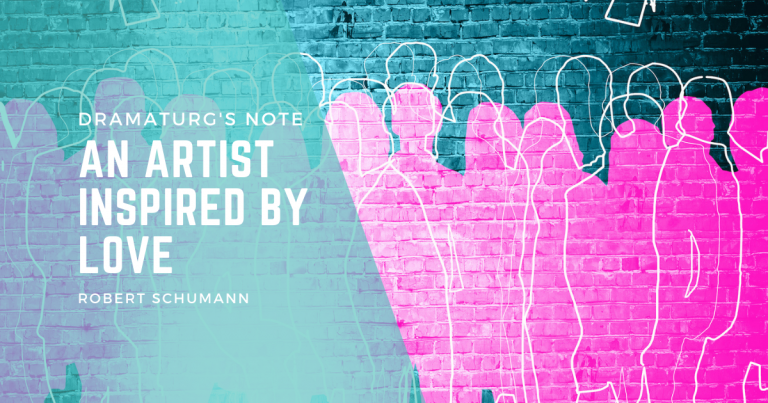Interview with the Playwright | MASTODONS
by Sofia Lindgren Galloway
“I think part of the excitement of being on stage is that you get to make impossible things happen.”
Just after the new year, I was able to spend some time chatting with my dear friend, collaborator, and the playwright of The Impracticality of Modern-Day Mastons, Rachel Teagle. Teagle and I met in the Twin Cities through a theatre festival several years before I started grad school. I’ve had the privilege of working with her multiple times, including directing another one of her plays. When I discovered Mastodons would be in the Emerson season, I knew I needed to be involved. Approaching her work, and this play in particular, from a dramaturgical perspective has been thrilling and challenging, as her work is filled with enormous, impossible, and often magical elements. That’s just who Rachel is, though. Her massive imagination, insatiable curiosity, and adoration for the craft of theatre shine through every conversation with her and every play she writes. I’m so glad I get to share a little of our conversation with you.
Sofia
My first question for you (and we have to ask it with this play): What did you want to be when you grow up?
Rachel
So when I was a kid, I really, really wanted to be LeVar Burton, so that I could fly spaceships at night and read books during the day. And that was all I wanted to do. And I thought it was the coolest thing in the world. And later, I learned about acting and having multiple jobs. But at the time, I was just like, yeah, LeVar Burton, that’s for me.
Sofia
That’s amazing. I’d love to know about this play. How did this play come to be? Where did it start?
Rachel
So this play actually began as a response to a call for short plays about mastodons. There’s a theater in New Jersey that used to do a contest for short plays written by women about mastodons in honor of the mastodon they have in their lobby or somewhere nearby. And so I got this idea about being a mastodon when you grew up and what would a mastodon do? What would you imagine [them doing] in a career counselor’s office and that kind of image came to mind. And that was really where this sparked and then as I was spending time with Jess and with Delores then, I was like, “Well, what happens when she goes home? What’s her partner like? What’s going on?” And then suddenly, this 10 minute play was a 45 minute one-act. And I completely blew that deadline and ended up with a very, very different piece. But had it not been for that specific call for Mastodon plays, I don’t know that I would have stumbled upon her but I’m very glad I did.
Sofia
Can you tell me a little bit about what the mastodon represents for you or means for you? Or maybe why you were attracted to the mastodon?
Rachel
When I was researching the mastodon, I was thinking about the idea of a mastodon versus a mammoth, and mammoth being kind of the more common, like the more popular thing and the mastodon’s kind of the indie, if you’re really in the know, if you know about prehistoric elephants, you’re a lot more jazzed about mastodons. But the more I researched them to do this thing, I was like, “Oh, I actually love them”. I love them. They’re littler than mammoths. They’re kind of like pitbulls because they have big shoulders and little heads. You look at the skeleton and you’re like, “Oh, I could hug that.” A mammoth would crush me but you can hug a mastodon. And that whole notion of being specifically an American animal was really interesting to me.
And thinking about when young children develop those special interests and have… if you sit next to a seven-year-old on a bus, you’re gonna learn every dinosaur they know. You know? They’re just so excited about knowledge, and about learning, and about finding things. I think tapping into that part of me as a kid, the joy of discovery and knowledge, and the joy that I found in learning about this animal was something that I wanted to share. And I think that part of making art is also discovering and learning and sharing that knowledge and making people go on that journey with you.
Sofia
Can you talk a little bit about your research process, in general, when you’re writing a play? Is it always the same? Or does it shift?
Rachel
Oh, not at all. Everything is different. I am kind of a meanderer. I usually don’t quite know where I’m going to end up or I think I’m going to end up somewhere else. And they surprise me. This play was very much a plotting sort of journey through the tundra, of just following [Jess] and where she went and being like, “Oh no, this is a problem.” When the big bad reveals themselves, I was as surprised as Jess was to be honest. And that’s my favorite part of when I’m writing an original play, the characters tend to surprise me. And they’ll kind of go in directions, and I just kind of follow them along. And then I go back and go, “Oh, crap, where’s the structure?” and have to layer things back in.
Like this play: it’s been through several workshops, and it’s kind of expanded and changed significantly. All of the chorus parts came through from an exercise at The Inkwell in Washington DC, where they were like, “just don’t think about anything, just barf some stuff out, we’ll make it work.” And suddenly it became these like interludes that gave this kind of an outside dream structure to all of this. But generally speaking, the characters lead me and I am following them along and then kind of cleaning up behind them as we go. But that’s part of the excitement of working on a new script is that you don’t know what’s going to happen. And you’re going to always find things. And I think that being open to finding things is definitely part of my process.
Sofia
Thinking about all the plays that you’ve written… what’s with all the talking animals?
Rachel
That’s an excellent question. I read a lot of Narnia books. I read a lot of Redwall books as a child. I feel like I’ve always been around animals, I’ve always wanted them to talk to me. I also think part of the excitement of being on stage is that you get to make impossible things happen. And so I don’t have to CGI a mastodon. I don’t have to figure that out. But you can say “hello, I’m a mastodon. Here’s this puppet, that’s me”. And we’re all in. That kind of brings you into that world of childlike metaphor, but also can carry a lot more poignancy, as we look at them as adults. Like, “how do we interact with each other as humans?” You can look at it differently when it’s coming from an animal versus from a person. And it’s also just frickin’ fun. I am a sucker for a talking animal. I’m a sucker for a puppet. I’m a sucker for things falling from the ceiling. I tend to write what I like to see. That was what the joke with my colleagues is that you know, it’s a Rachel Teagle play when an animal talks and someone gets punched.
Sofia
Wait, I don’t think anyone gets punched in the face in this show though.
Rachel
That is a change! But there was initially a moment of violence that I’m so grateful we have taken out. It’s the thought of wanting to do it is plenty. [But] I think that taking it to that point is necessary, otherwise, it stays fun. And it can’t be fun. It’s not fun. And that’s part of it.
Sofia
I’d love to go back a bit because it’s come up in a bunch of your answers and it’s very much a part of this play – I feel like childhood is a theme in a lot of your plays and I want to hear more about that.
Rachel
I’ve been writing since I was a child. I used to dictate stories to my parents about our pets being pirates, and they would write them down in little books for me. And so that was always a part of who I was. But I also think that for me I’m trying to heal baby Rachel, in some ways; part of what I’m doing with this is going back to like, honoring the over-curious, dorky child. Like those impulses that may have been stamped out later, and trying to reawaken and celebrate them and be like, “It’s okay. You can keep wandering. You can keep learning, you can keep exploring.”
[And] I’ve written a lot of theater for young audiences. And that’s something that I’ve been consistently paid to do. That’s part of where I got my love for theater. That’s where we invest in the arts, is with children, it’s also how we get grown-up artists.
Sofia
What do you want audiences to take away from this show?
Rachel
I want everybody to ask each other what they wanted to be when they grew up, and figure out who had the weird, ridiculous dreams and find ways to spark that same spirit going forward. And bringing yourself back to that place of being curious imaginative children who didn’t know what was impossible, and finding ways to bring that forward into our world today. That’s what I want.
We had an actor in one of the workshops, who wanted to be a garbage man. What she wanted to do was to ride on the back of the truck and throw things over her head. We realized, “Oh, my God, I wanted to do that too.” And there was a group of people who were also excited about being garbagemen and they’d forgotten the joy of watching the truck and throwing the things over your head and it wouldn’t be so fun to hang on and go through the streets. All those sense memories of what brought you joy or brought you wonder – what you wanted in the little pit of your being. I think that that is a conversation that everybody should come back and talk about.
Sofia
Is there anything else that you want to say to the folks who are going to read this blog, or anything else that you want people to know?
Rachel
If you are an actor, make friends with playwrights and read their plays for them out loud. If you are a playwright, make friends with actors and make them read plays out loud. If you are interested in writing plays, read plays. If you are interested in reading plays, try writing a play. Get on the New Play Exchange. There are so many excellent, beautiful, tremendous works out there that are begging for people to put their eyes and ears on them. And if something – a piece of art, a piece of writing, if an actor, if a writer, if a director – excites you, HYPE THEM UP, show everybody that you appreciate them. A rising tide lifts all boats. We are in this together and the more excellent art there is out there, the better it is for everybody making something.
